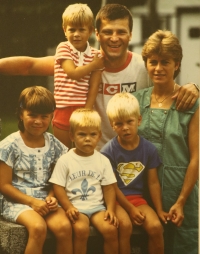Peter, we are a nuclear power and we will be here forever!
Download image
Peter Šťastný was born on September 18, 1956 in Bratislava. His worldview, which was in stark contrast to the communist regime, shaped the Christian and patriotic background. At the age of twelve, he started playing hockey for the Slovan club in Bratislava. He gradually profiled himself as a Czechoslovak national team member, in 1975 and 1976 he won the title of world champion. In the 1978/79 league season, he played in the Slovan team, which was the first Slovak team to win the title in the highest Czechoslovak competition. Over time, Stastny’s conflict with the regime deepened, culminating in emigration to Canada in 1980. In the NHL, he became a player of the Quebec Nordiques, where he created an attack with his brothers Marian and Anton, also emigrants. In the 1980s, he was the second most productive player in the entire competition. He took part in the World Congress of Slovaks and after the independence of Slovakia he made a significant contribution to the representation of the country in the international forum in terms of sports and politics. He lives and works alternately in Slovakia and overseas.
